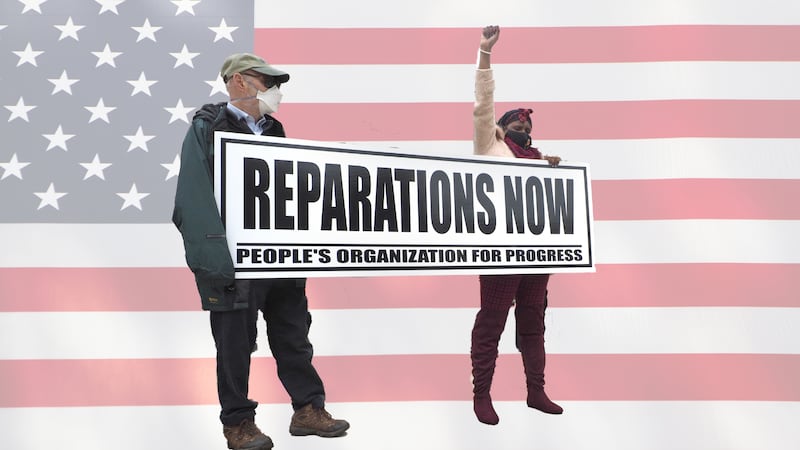
New Jersey’s Institute for Social Justice (NJISJ) will continue to examine the state’s history of slavery and its impact on Black New Jerseyans during a virtual public meeting on Monday.
The Institute’s New Jersey Reparations Council will hear comments from pre-registered speakers during its sixth public session on Zoom at 6:30 p.m. on Monday.
The council, comprised of state and national experts from various disciplines, is the first of its kind in New Jersey to acknowledge and confront the state’s involvement in slavery and its impact on the contemporary life of Black people in the state.
Saladin Ambar, a Political Science professor at Rutgers-New Brunswick, sits on the council’s Democracy Committee, which is also exploring how New Jersey can repair the damage caused by slavery.
“What does the State of New Jersey owe its Black residents for the loss of their votes, full participation, and equal access to the benefits of democratic citizenship?” said Ambar, senior scholar at the Eagleton Institute of Politics. “Our committee has been examining the formal and informal mechanisms by which Black New Jerseyans have been excluded from the full benefits of democratic life in the state — and what can be done to rectify that exclusion.”
Members of the Democracy Committee include educators, activists and public policymakers, including:
- Jean-Pierre Brutus, senior counsel, New Jersey Institute for Social Justice
- Ryan Haygood, president and CEO, New Jersey Institute for Social Justice
- Khalil Gibran Muhammad, Ford Foundation Professor of History, Race and Public Policy, Harvard Kennedy School
- Saladin Ambar, political science professor and senior scholar, Eagleton Institute of Politics, Rutgers-New Brunswick
- Madiba K. Dennie, deputy editor and senior contributor, Balls and Strikes
- Jesse Burns, executive director, League of Women Voters of New Jersey
- Emahunn Campbell, civil rights fellow, Relman Colfax PLLC
- Larry Hamm, founder and chairman, People’s Organization For Progress
- Sharif Braxton, community officer, NJ, Robert Wood Johnson Foundation
Monday’s meeting will be streamed live from 6:30 to 9 p.m. Zoom and on the NJ Institute for Social Justice’s YouTube channel. Attendees must register to obtain a link to join the Zoom meeting.
Community members are encouraged to submit testimony in any form on the Reparations Council’s website whether or not they participate live or watch.
Committee members will consider input from the public when creating policy recommendations. Over the next two years, the council will study New Jersey’s history and connection to its current racial landscape, making strategic and bold recommendations for reparative justice policies in New Jersey.
Read more like this on Mosaic:
NJ reparations council shares key insights after year of in-depth research
Juneteenth rally unites community in fight for reparations
Ande Richards may be reached at arichards@njadvancemedia.com.
Welcome to Mosaic. Follow us on Instagram at @MosaicNJcom and on Facebook at MosaicNJcom and on YouTube at @MosaicNJcom.

